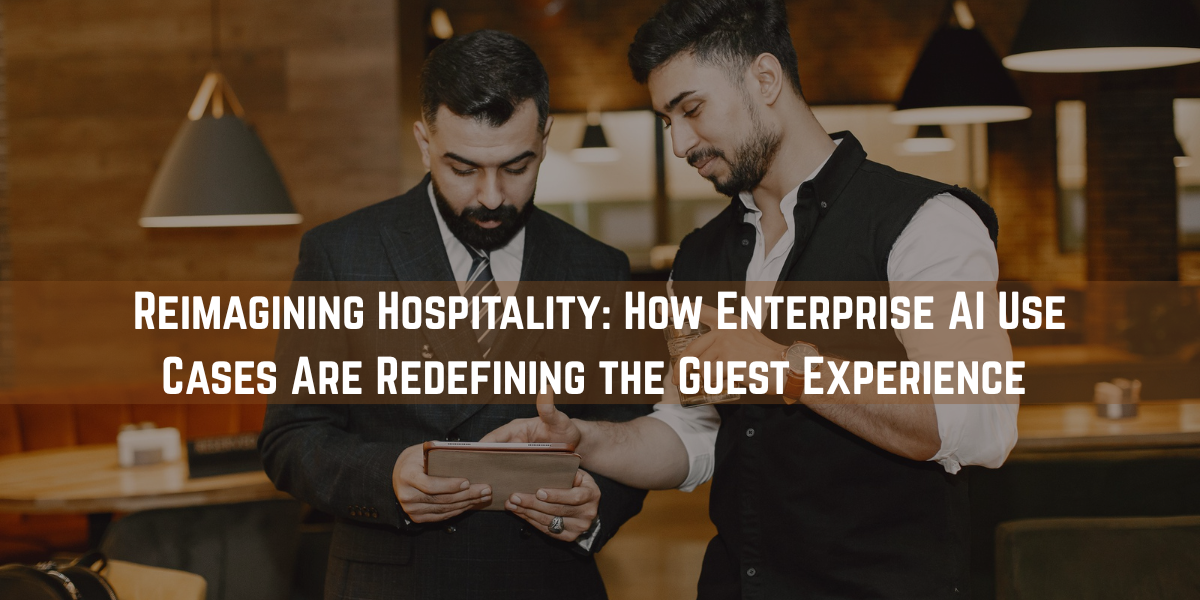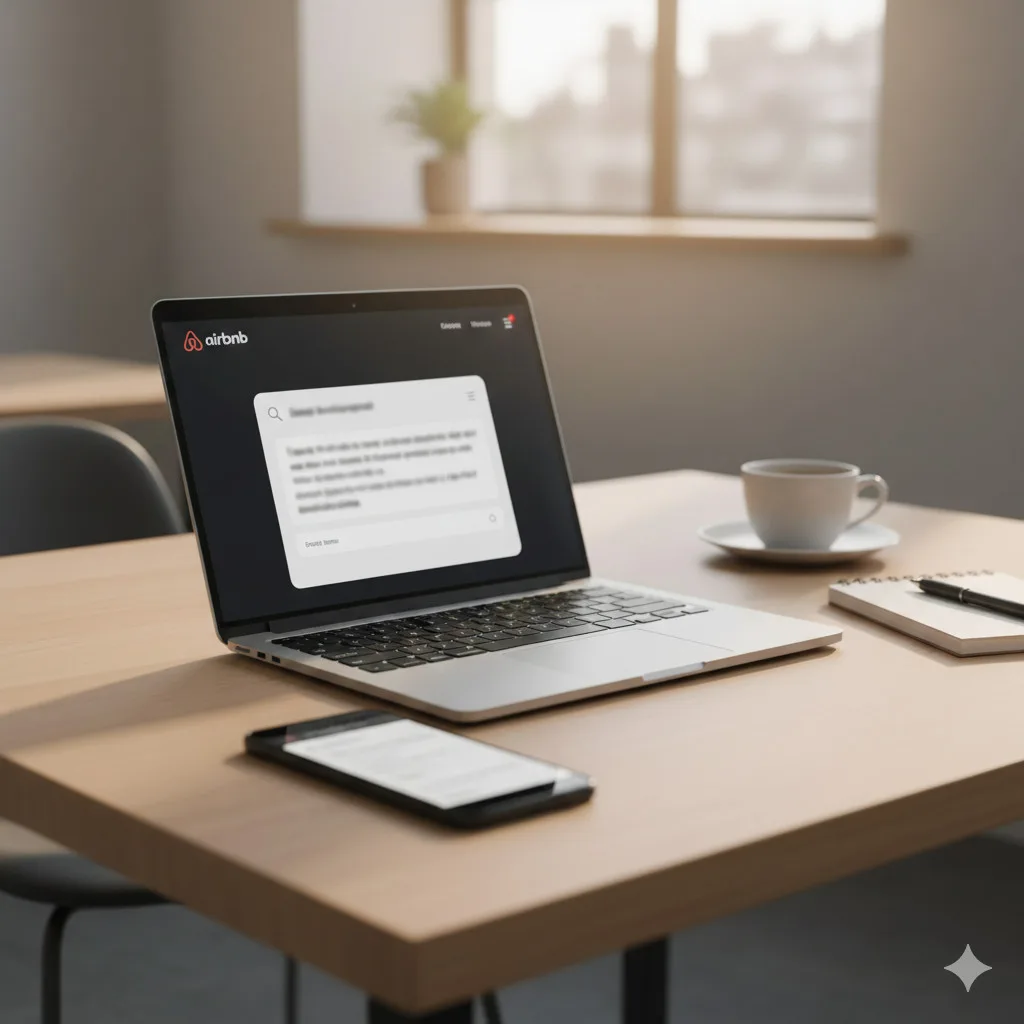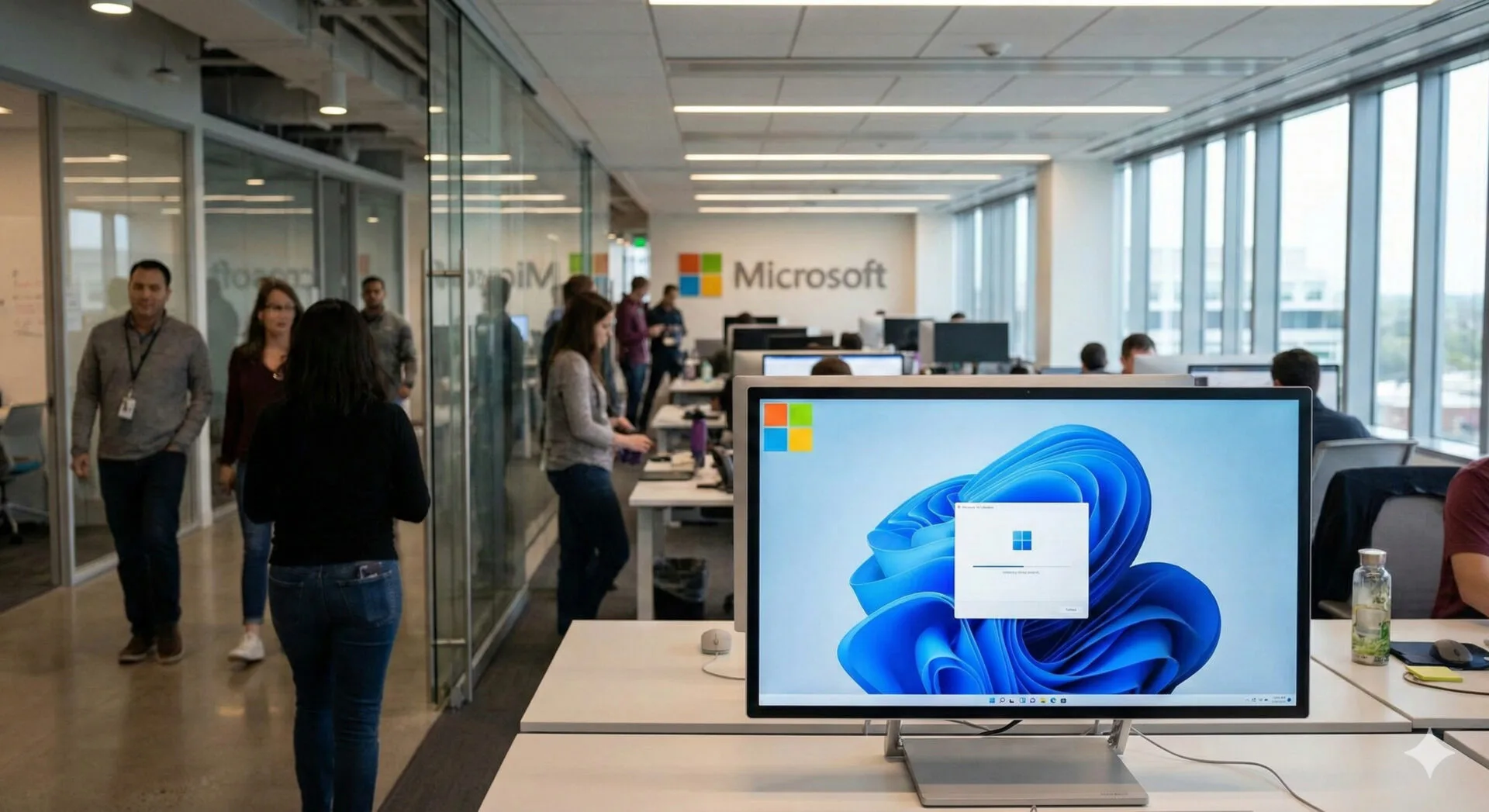The hospitality industry is no longer just about check-ins and concierge services—it’s evolving into a hyper-personalized, data-driven ecosystem. From luxury hotels to global resort chains, hospitality businesses are now expected to deliver seamless, intuitive, and customized experiences across every guest touchpoint. In this transformative landscape, enterprise AI has emerged as a strategic lever, reshaping operations, optimizing resource management, and redefining how guest experiences are delivered.
Today, enterprise AI use cases go far beyond simple chatbots. We’re witnessing the rise of intelligent forecasting, AI-enhanced pricing, real-time guest sentiment analysis, and adaptive service automation—integrated tightly into hospitality software platforms that power operations at scale. What was once considered futuristic is now a foundational concept.
Enterprise decision-makers are under increasing pressure to operate more efficiently while consistently delivering elevated guest experiences. Macroeconomic uncertainties, such as rising inflation, talent shortages in service roles, and a post-pandemic shift in guest behavior, have accelerated the need for transformation. In this context, enterprise AI isn’t a luxury—it’s the core engine of innovation and resilience.
AI-Powered Personalization Across Guest Journeys
One of the most impactful transformations brought by enterprise AI lies in the realm of personalized guest experiences. AI models ingest data from a wide array of sources—such as past bookings, food preferences, loyalty programs, and even social media footprints—to tailor services at an individual level.
From recommending the perfect room layout to offering curated dining experiences and personalized offers, AI-infused hospitality software now anticipates guest needs with uncanny accuracy. Natural Language Processing (NLP) allows voice-based interactions with in-room digital assistants, while facial recognition accelerates check-ins for returning guests.
Upselling is also evolving—AI systems can identify spa-goers and prompt personalized offers for signature treatments or suggest curated local tours via WhatsApp based on prior itineraries. This level of personalization boosts loyalty, increases average revenue per user (ARPU), and significantly enhances the perceived value of the stay—making AI a direct contributor to business growth.
Dynamic Pricing and Revenue Optimization
In an industry where occupancy rates can shift rapidly due to seasonal fluctuations, events, or even social media trends, static pricing is no longer sustainable. Enterprise AI enables dynamic pricing strategies that respond in real time to internal and external variables, ranging from competitor pricing to weather forecasts.
By analyzing historical data, booking trends, and local events, AI-driven hospitality solutions can automatically adjust rates to maximize occupancy and profitability. This not only eliminates manual pricing errors but also ensures hotels remain competitive across booking platforms and direct channels.
The result is more innovative yield management, better revenue per available room (RevPAR), and more agile financial control, especially for multi-property operations that require centralized visibility and decentralized flexibility.
Operational Efficiency with Predictive Maintenance
AI’s role in back-of-house operations is just as transformative as it is in guest-facing operations. Predictive maintenance, powered by machine learning models, is helping hotel operators reduce unexpected downtime in HVAC, elevators, and kitchen systems by analyzing usage patterns and signaling proactive service requirements.
Instead of waiting for assets to fail and disrupting service delivery, AI-integrated asset monitoring systems notify engineering teams before failures occur, allowing for proactive maintenance. A leading 5-star resort, for example, reduced elevator outages by over 30% after embedding predictive maintenance modules into its core software. This level of efficiency reduces operational costs and ensures a continuous level of guest comfort.
Combined with AI-enhanced housekeeping scheduling and innovative inventory systems, these use cases bring a tangible return on investment for every square foot of managed property.
Hyper-Automated Customer Support with AI Assistants
Enterprise AI has dramatically elevated the standard for guest support. Virtual concierges powered by large language models are now capable of handling multilingual requests, managing complaints, and even performing upselling in a natural, conversational manner.
Integrated directly into suites, these AI agents can interpret context, maintain memory across interactions, and escalate issues when human intervention is needed—all while reducing response time to seconds.
This not only improves customer satisfaction but also reduces operational strain on front-desk staff, particularly during high-volume periods like events or holiday seasons.
Sentiment Analysis and Experience Management
What guests say online—on social platforms, in reviews, or on feedback forms—often shapes brand perception. Enterprise AI platforms can now conduct real-time sentiment analysis to detect service gaps, highlight recurring issues, and even forecast reputation risks.
By scanning unstructured data across multiple digital channels, AI tools surface actionable insights, such as which amenities are drawing the most praise or what service lapses are driving negative feedback.
This layer of intelligence, when embedded within hospitality software, empowers general managers, brand leaders, and marketing teams to fine-tune experiences with precision and accuracy. It allows teams to move from reactive service correction to proactive experience orchestration.
Workforce Optimization Through AI Insights
Managing a diverse and often geographically distributed workforce is a longstanding challenge in the hospitality industry. AI is being deployed to optimize shift planning, match staffing to predicted occupancy levels, and even recommend personalized training modules based on employee performance data.
With AI-driven workforce analytics, hospitality brands can reduce overstaffing costs, improve labor productivity, and enhance team morale—all while maintaining high service standards.
Moreover, predictive modeling helps HR teams anticipate attrition, manage seasonal hiring spikes, and make strategic talent investments in regions with projected demand surges.
Sustainability and Smart Resource Management
Sustainability is no longer a brand differentiator—it’s an expectation. AI-powered resource optimization tools are now tracking energy consumption patterns, water usage, and food waste in real time. These insights enable hospitality businesses to make sustainable choices that also drive cost savings.
For example, smart thermostats powered by AI can automatically adjust settings based on occupancy, while kitchen analytics platforms reduce food waste by tracking consumption trends versus preparation patterns.
By embedding sustainability intelligence directly into hospitality software ecosystems, enterprises can align their ESG goals with operational strategies, thereby enhancing both brand reputation and bottom-line performance.
AI-Driven Transformation in Group Bookings and Event Management
Beyond individual travelers, enterprise AI is significantly reshaping how the hospitality sector manages group bookings, events, and conferences. Large hotels and convention-focused properties are using AI to forecast demand spikes for MICE segments, optimize banquet hall utilization, and streamline group check-ins.
AI-enhanced hospitality solutions can instantly generate personalized event packages based on attendee profiles, budget constraints, and space availability. For example, corporate clients can receive real-time pricing and layout options for meetings or receptions, powered by AI algorithms trained on historical event data and seasonal trends.
This intelligent automation not only accelerates the event sales cycle but also improves occupancy balancing across weekdays, helping revenue managers fill low-demand slots with group events. In doing so, AI bridges the gap between operational planning and client-facing engagement, elevating the standard of enterprise event management.
Integrating AI Across the Enterprise Hospitality Stack
To truly scale AI’s impact, hospitality enterprises need a full-stack integration approach. This includes data interoperability across CRMs, POS systems, loyalty platforms, and property management systems (PMS). AI models thrive on clean, real-time data that flows across systems without silos.
That’s where custom advanced software development plays a pivotal role. Off-the-shelf tools often fail to capture the unique complexity of enterprise hospitality operations, especially for global brands managing diverse property types, languages, and customer segments.
Partnering with a provider that builds custom enterprise AI solutions ensures the technology aligns with your workflows, not the other way around. From tailored recommendation engines to AI-driven CX platforms, the goal is to design systems that adapt, learn, and scale with your business model.
Conclusion: Enterprise AI Is Reshaping the Core of Hospitality
The growing sophistication and enterprise-readiness of AI use cases are redefining the hospitality industry. From intelligent personalization and dynamic pricing to smart maintenance, sentiment analytics, and sustainable operations, enterprise AI is no longer experimental—it’s essential.
Organizations that integrate AI across the full hospitality stack gain not only operational efficiency but also strategic agility. In a market defined by shifting guest expectations and economic pressures, this agility is a game-changer.
With AI becoming native to enterprise hospitality software platforms, decision-makers can now future-proof service delivery, unify operations, and unlock new revenue streams. In every corner of the guest journey and behind every operational decision, AI is setting the new gold standard for the hospitality industry.






Leave a Reply